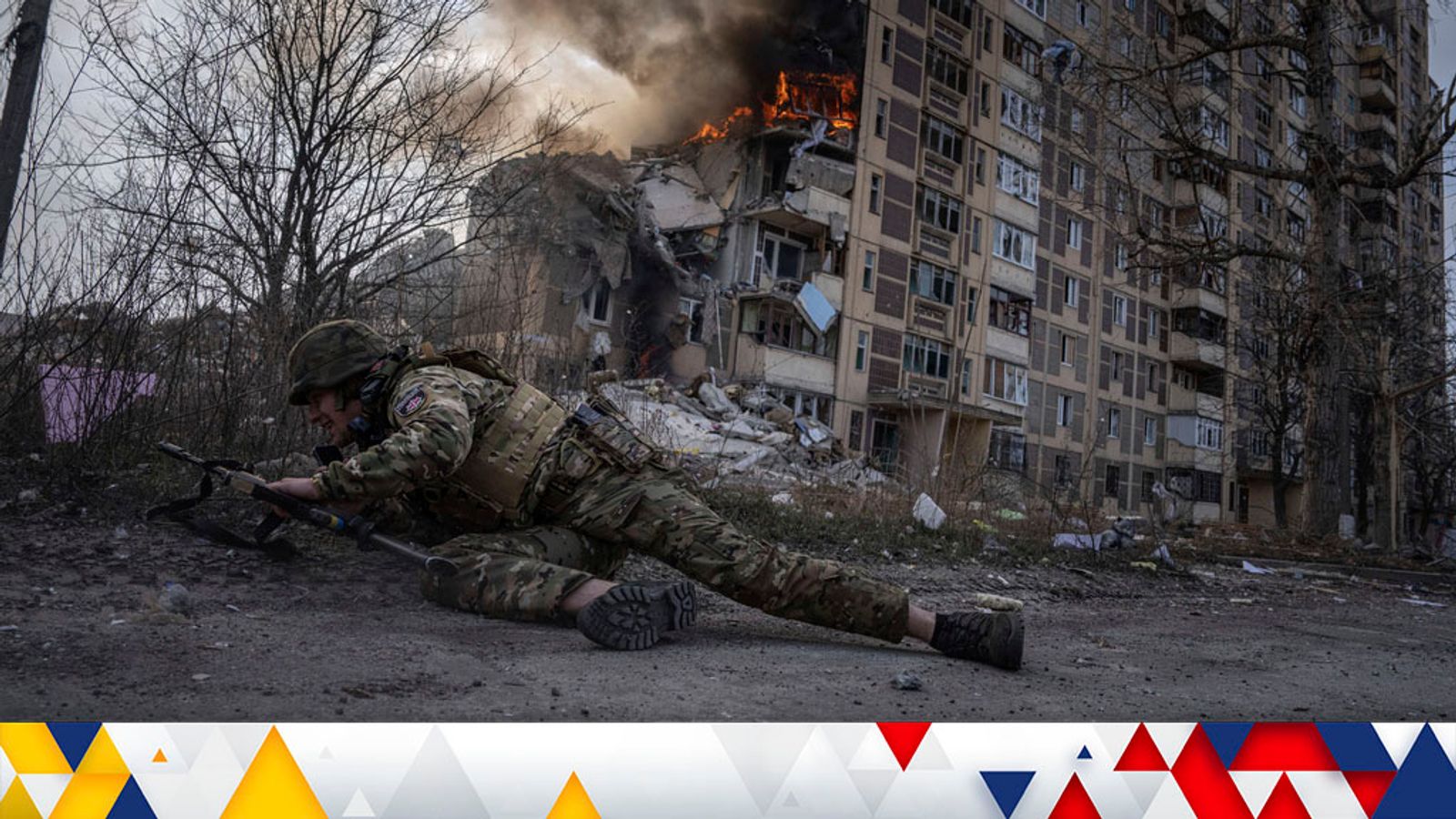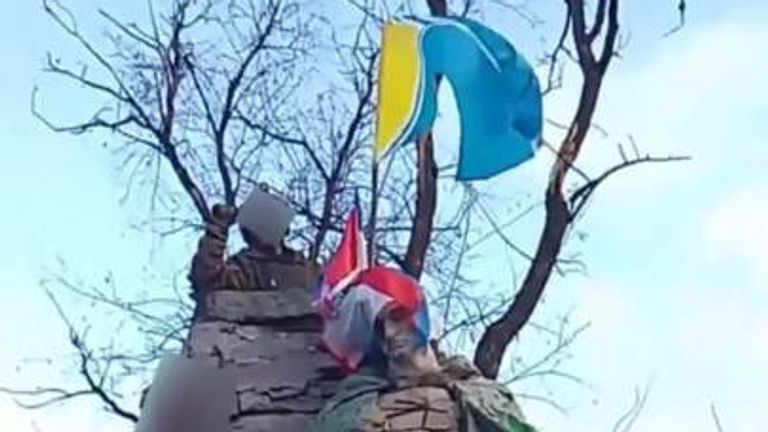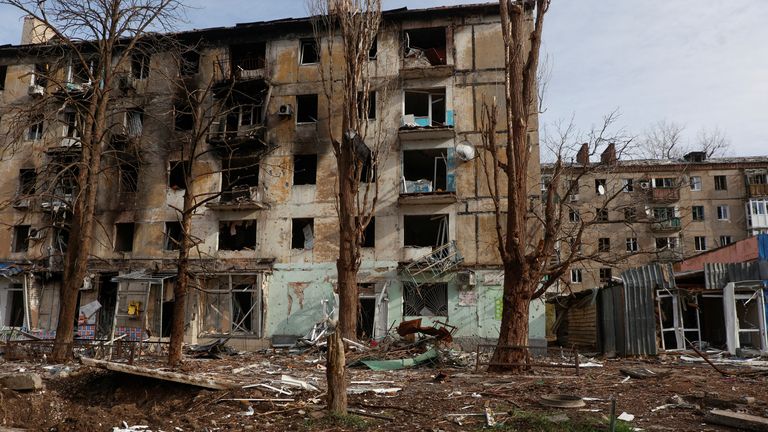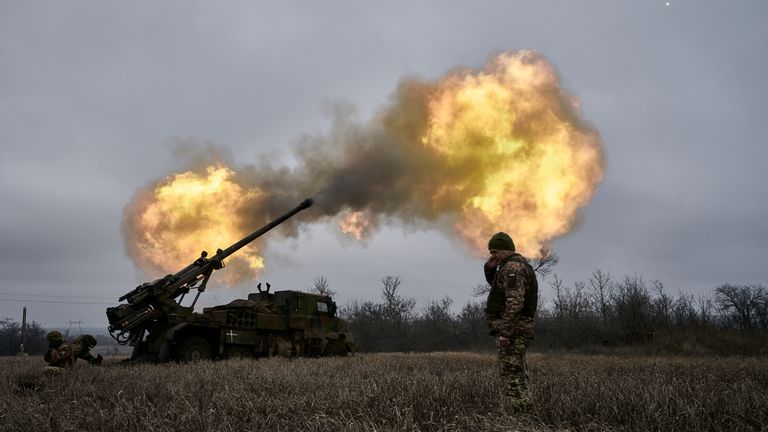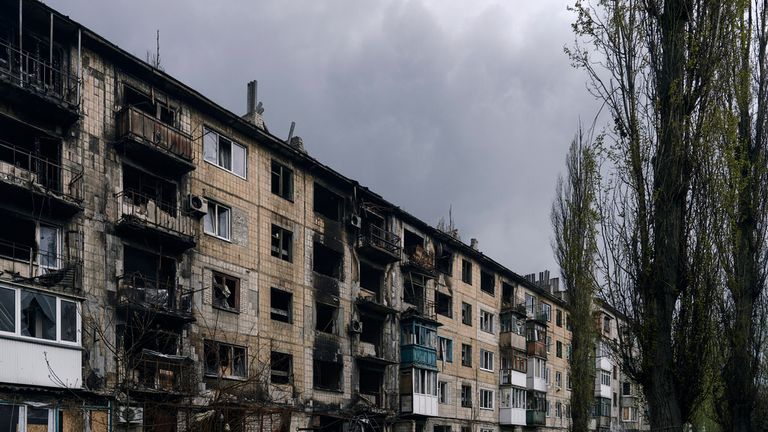
The fall of Avdiivka has handed Russia its most important battlefield victory since it seized Bakhmut following nine months of gruelling attritional warfare.
But was a lack of Ukrainian ammunition to blame for this battlefield loss, and is this rare Russian success the start of a dangerous new phase of the war?
Avdiivka has been the scene of some of the fiercest and most bloody battles of the war. Russian forces have laid siege to the small Ukrainian city for the past four months.
Navalny’s wife shares goodbye photograph – follow latest
The Ukrainian forces have been significantly overmatched by Russian troops, with some reports suggesting that areas of the frontline had 10 times as many Russian soldiers as Ukrainian.
The Russian Air Force has also been playing an increasingly prominent role in the battle, taking advantage of the relatively close proximity of the sanctuary of Russian airspace.
Delivering over 60 bombs a day on to Ukrainian frontline positions eventually rendered the Ukrainian defence of Avdiivka untenable, as the Russian forces have slowly been encircling the city.
Ukraine’s decision to retreat from the frontline city appears justified militarily, but that has not stopped President Zelenskyy and President Biden highlighting Ukraine’s shortage of weapons and the increasingly critical nature of further delays to securing the $60bn of aid currently being delayed by the US Congress.
Although Ukraine will be keen to secure long-term funding support from the US, the critical Ukrainian need at this time is weapons and ammunition.
The EU has approved ongoing funding support for Ukraine, but converting this commitment into ammunition available to frontline soldiers is a challenge.
For the past two years, the majority of the weapons provided to Ukraine have been sourced from the war chests of Western nations.
However, those stocks are now running low, and there are no ready supplies available commercially.
Activating an individual nation’s defence industrial base to design, build and deliver replacement weapons is one of the only ways to meet Ukraine’s future military requirements.
The West has successfully sourced some replacement ammunition – such as artillery shells – but these tend to be used in attritional warfare which favours the larger force, so this is not Ukraine’s priority.
In contrast, Ukraine has seized the initiative in this war through the West providing high-technology, precision strike weapons such as the UK Storm Shadow missile.
This weapon has proven very effective at attacking Russian targets in occupied Ukraine, but stocks are running low – Ukraine want more.
However, this missile is 30 years old, and many of the components are obsolete, so industry cannot easily provide replacement stock.
The West could provide Ukraine with more modern weapons from its inventory or directly from the manufacturers; however, technology is the West’s asymmetric advantage on the battlefield.
There is always a risk that some of the West’s donated weapons will end up on the black market and eventually in the hands of the Russians or Chinese, and the West cannot afford to compromise its own national security.
As a result, the only sustainable way to provide Ukraine with enduring military support is through a coordinated investment in the international defence industrial base.
However, the investment, development, production and testing process all takes time – which Ukraine does not have.
Although Russia has achieved a rare victory by seizing Avdiivka, its military forces suffered very high casualties during the four-month siege of the city.
Read more from Sky News:
Police in Russia crack down on protests
Russia ‘outmatched’ by Ukraine’s allies
Ukraine’s army chief says forces have pulled out of frontline city
Offensive action in the winter is difficult; the cold weather is unforgiving, there is limited natural cover from leaves and foliage, and the ground is frozen making it hard to dig foxholes.
So why was Avdiivka such a priority for Russia?
The 24 February marks the two-year anniversary of Russia’s invasion of Ukraine, and President Putin will have been very keen to demonstrate battlefield success to boost the moral of its forces.
Putin will also want to demonstrate progress in his “special military operation” in advance of the Russian presidential elections being held next month.
However, most analysts believe that neither Russia nor Ukraine have sufficient military resources to mount a significant offensive anytime soon, and that the coming year could be characterised by a series of smaller indecisive actions along the frontline.
But, if the West fails to address Ukraine’s desperate need for munitions, that will create a window of opportunity for Russian forces, and one that President Putin might be tempted to exploit.

